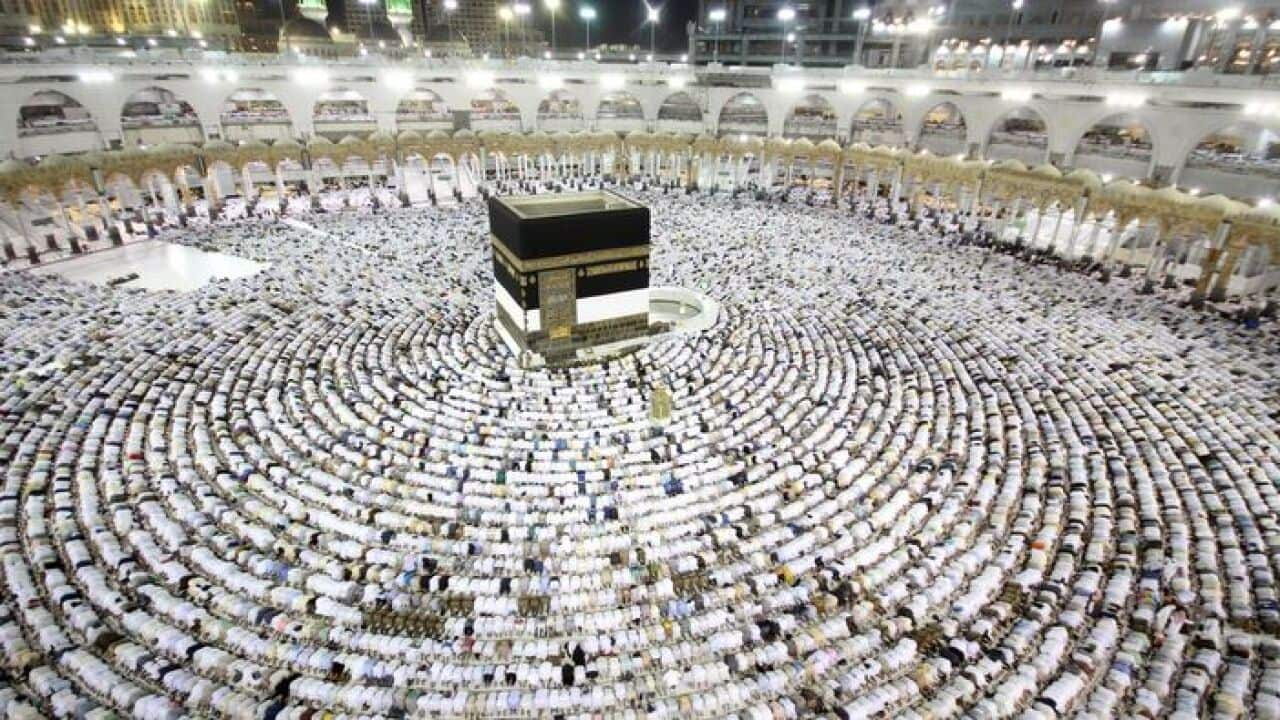Survivors and relatives of the Christchurch mosque shootings have departed New Zealand to take part in the holy Hajj pilgrimage.
The Hajj is one of the five pillars of the Islamic faith, and all able-bodied Muslims are expected to perform it once in their lifetime.
Fifty-one people died and another 49 were injured in twin terror attacks at mosques in the suburbs of Christchurch during Friday prayers this March. Two hundred relatives and survivors from the shootings will be traveling to Saudi Arabia as guests of Saudi King Salman bin Abdulaziz Al Saud.
Two hundred relatives and survivors from the shootings will be traveling to Saudi Arabia as guests of Saudi King Salman bin Abdulaziz Al Saud.

Jacinda Ardern walks to plant a tree of remembrance with people connected to the Christchurch terror attacks. Source: Getty Images
Rehana Parveen is the wife of one of those survivors.
She said the trip will make a real difference.
“When a person goes for Hajj, that's a big, big thing for them,” Ms Parveen said.
“We're dealing with lots of things, pain and trauma ... but this is really going to help [and] change our lives.”
Saudi King Salman bin Abdulaziz Al Saud is paying for all travel and accommodation costs, a bill likely to be more than $1 million.
The Saudi ambassador to New Zealand, Abdulrahman Al Suhaibani, last week said farewell to the pilgrims at the Al Noor mosque, one of two where the attacks happened.
The ambassador handed out special clothes for the men to wear during the pilgrimage and told the women they would be given kits when they arrived in Saudi Arabia.
Rehana's husband, Mohammad Shamim Siddiqui - who survived the attack - said the chance to make the pilgrimage will go a long way to healing their pain.
“It's a lifetime achievement. It is I think every Muslim's wish before they die to visit Mecca at least once in their life,” he said. “From the [date of the shootings] our entire life has been changed."
“From the [date of the shootings] our entire life has been changed."

Mourners lay flowers on a wall at the Botanical Gardens in Christchurch. Source: AP
"So we are very excited, very excited."
During the five-day pilgrimage, millions of Muslims circle Islam's most sacred site, the cube-shaped Kaaba, and take part in rituals intended to bring about greater humility and unity.
For many of the survivors who were wounded and who still carry the scars of the attack - both mental and physical - the flight, which could take up to 30 hours, could be an ordeal in itself.
Once in Mecca, the pilgrims will take part in daily prayers - in the open air in 40 degree heat - and will spend some time camping in tents. Islamic scholars say the Hajj is supposed to be difficult.
Islamic scholars say the Hajj is supposed to be difficult.

Worshippers pray at a makeshift memorial at the Al Noor Mosque in Christchurch on March 19. Source: AAP
But Mohammad and Rahana's daughter, Alisha Shasiddique said her parents couldn't wait to begin their pilgrimage.
“It's a really, really big deal for them and they are so excited,” she said.
“I’m so proud and so happy for them.”










